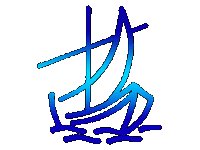Agape Bible study link to Chapter 6 commentary #1 2:1-11 The sign of water turned to wine at the wedding at #2 4:46-54 The healing of the official’s son #3 5:1-9 The healing of the paralytic #4 6:1-14 The multiplication of the loaves to feed the 5,000 #5 9:1-41 The healing of the man who was born blind #6 11:17-44 The raising of Lazarus from the dead #7 2:18-20* The Resurrection of Jesus that will be fulfilled in 20:1-10 *this sign is prophesized by Jesus in 2:18-20 but not fulfilled until chapter 20. The miracle when Jesus walks on the Here is a breakdown of the significant verbs used in the “Bread of Life Discourse”: Notice when Jesus speaks of Moses and the children of Verse 49 “Your fathers ate [ephagon] manna in the desert Verse 50 “… that a person may eat [phage] it and not die” Verse 51 “Anyone who eats [phagon] this bread will live Verse 52 “How can this man give us his flesh to eat [phagein]?” Verse 53 “If you do not eat [phagethe] the flesh of the Verse 54 Verse 56 “Whoever eats [trogon] my flesh and drinks Verse 57 “whoever eats [trogon] me will also draw life Verse 58 “..it is not like the bread our ancestors ate “but anyone who eats [trogon] this
Link to Agape Handout: Was the Last Supper a Sacrificial Sacrifice?
Click on the Read More Link for the Chapter 6 Handout.
HANDOUT CHAPTER 6
The Public Seven Signs of Jesus in St. John’s Gospel
and
bread will
Thursday, October 04, 2007
John Chapter 6: Agape Bible Study Link and Handout
“Anyone who does eat [trogon] my flesh
~AMDG~
Robin L. in TX
at
2:22 PM
![]()
Labels: LRSS: John
Subscribe to:
Post Comments (Atom)






1 comment:
well im my opinion the old manna the jews ate which gave them such a strong bond with yahweh is a sort of psilocybe mushroom, the body of jesus the new savior is the advent of the amanita muscaria being the new prophet and to not go by the old ways and only consume the new lord, when amanita is boiled in water the pigment from its cap turns water red like wine, the 1st miracle to be performed before any other, look at the pope's gown for instance looks like he's the vicar of the amanita muscaria more like it taking it in ritual with the rest of the priestly class to help them gain knowledge of how better to control and subdue the masses
Post a Comment